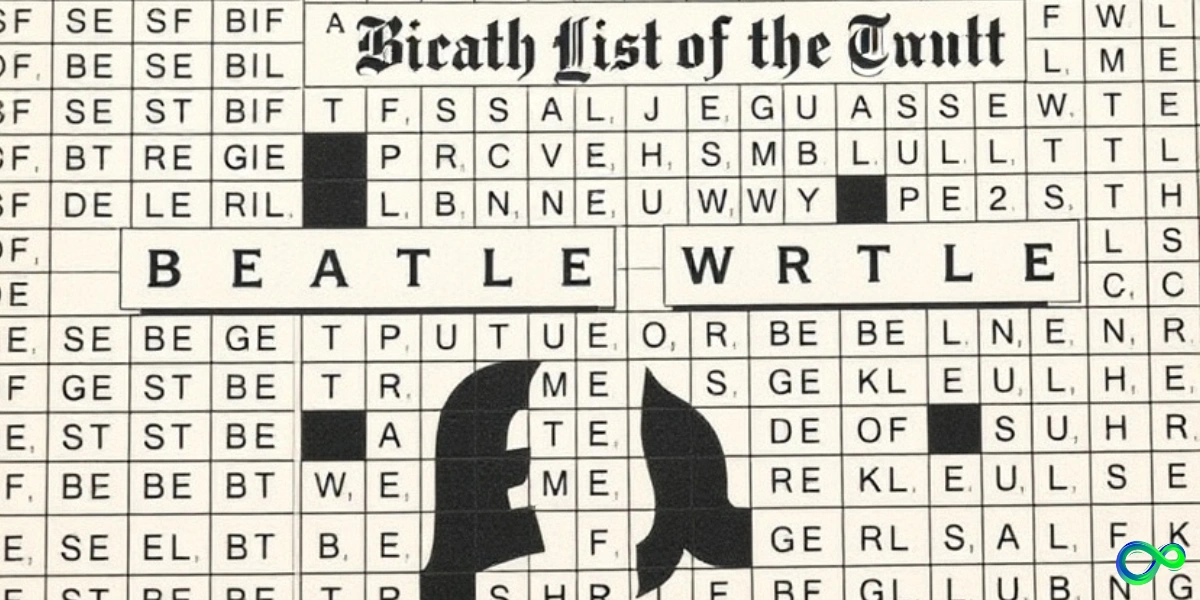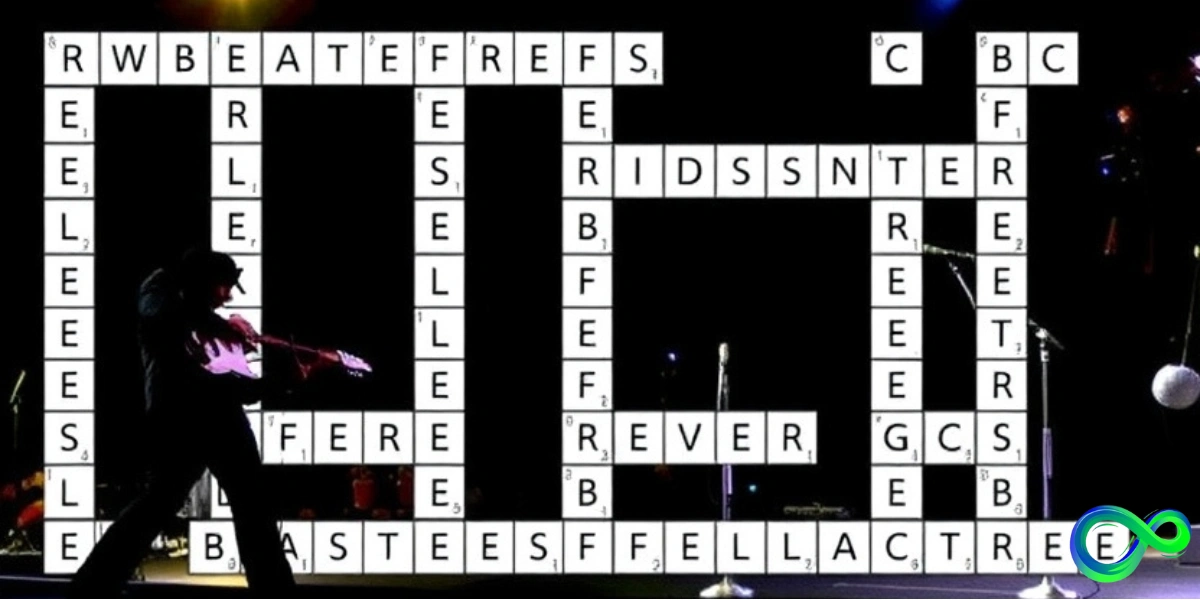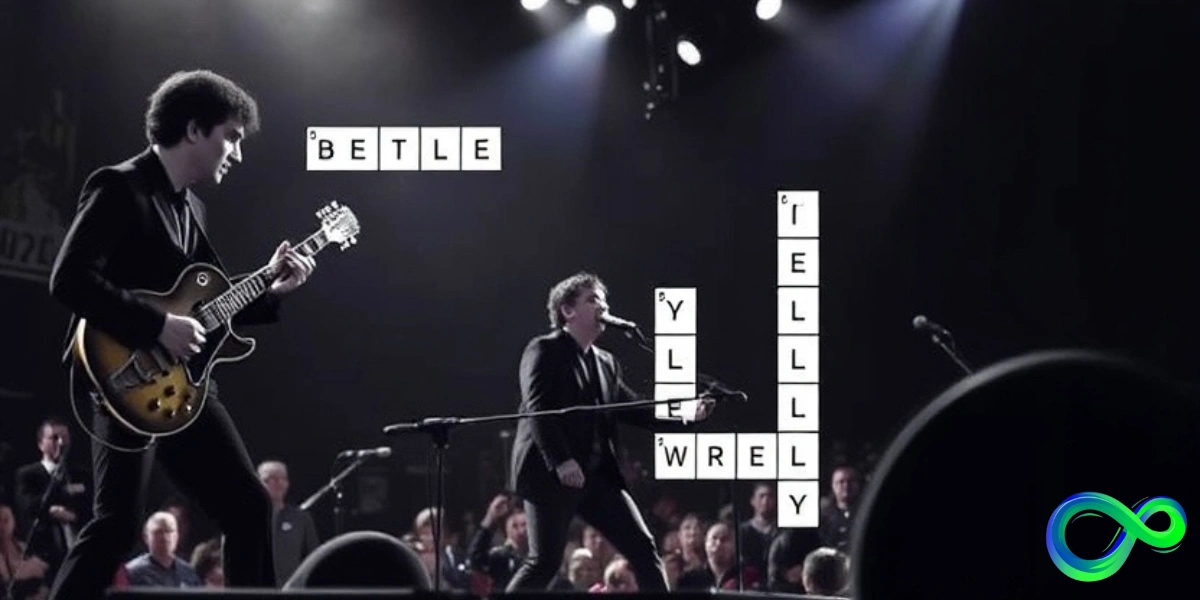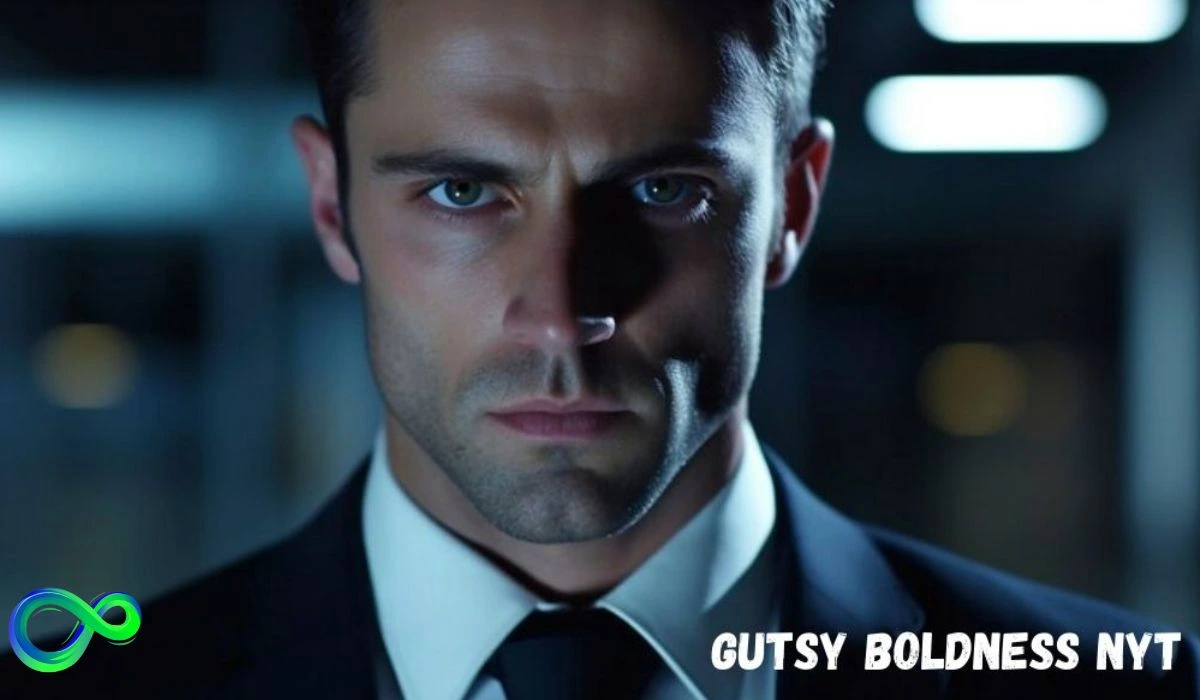Suffix with Beatle or Wrestle NYT: The Power of Suffixes
Crossword problems frequently force solvers to consider words and their structure in novel ways, including the interactions between various elements like prefixes, roots, and suffixes. A typical kind of clue asks solvers to find a suffix that they can add to specific phrases to create new keywords. For instance, the clue “Suffix with Beatle or Wrestle NYT” asks solvers to add a suffix to both “Beatle” and “Wrestle” to create acceptable terms.
It’s crucial to take into account word forms and how a suffix alters a word’s meaning or part of speech when analyzing signals like these. Whereas “Wrestle” might develop into a phrase connected to the activity or sport of wrestling, “Beatle” might become a word related with the well-known rock band thanks to a suffix.
This kind of clue assesses a solver’s knowledge of how words can be expanded or changed to fit different contexts in addition to their vocabulary. Such clues add a level of difficulty to crossword puzzles since they call for both lateral thinking and an understanding of the subtleties of the English language.
Finding a suffix is only one aspect of the puzzle. Solvers also need to ensure that the new word created by the combination fits the other clues and makes sense in the grid provided. Crossword puzzles encourage wordplay, where the objective is not only to figure out the answer but also to recognize the linguistic creativity involved.
One example of this is the clue “suffix with Beatle or Wrestle.” The solver must identify a suffix that can be added to both “Beatle” and “Wrestle” to create new terms.
Solving these kinds of puzzles helps people become more adept at solving problems and gain a deeper understanding of word formation, suffixes, and how words can be changed to fit different contexts. These exercises encourage linguistic flexibility and provide an enjoyable, captivating way to explore the complexities of language.
Overall, crossword puzzles, especially ones incorporating suffix clues, provide more than simply entertainment—they are a brain workout that pushes players to think critically and expand their vocabulary in the process.
The challenge provided by clues like “suffix with Beatle or Wrestle NYT” underscores the lasting appeal of word games in honing the mind.
Also read:
State_Class None and Device_Class Volume
The Role of Suffixes in Crosswords

A suffix is a character or collection of characters that are added to the end of a word to alter its meaning or function. Crossword questions such as “suffix with Beatle or Wrestle NYT” ask you to find a suffix that, when paired with these items, forms a coherent noun.
This kind of clue improves puzzle-solving abilities and word formation knowledge by forcing solvers to consider how words change with the addition of suffixes. These hints, which promote deeper language engagement, are common in crossword formats.
Analyzing the Suffix with Beatle or Wrestle NYT
“-er” is the particular suffix that is commonly used in puzzles with Beatle or Wrestle NYT. Adding it to “Beatle” creates the fun term “Beatler,” which may be used to describe a member of the Beatles. When combined with “Wrestle,” it becomes “Wrestler,” a phrase used to describe a wrestler.
This suffix is appropriate for crossword puzzles since it is a popular linguistic tool used to signify a person involved in an activity.
Examples of the Suffix with Beatle or Wrestle NYT in Context
Take, for example, the crossword puzzle “Suffix with Beatle or Wrestle NYT.” In this instance, the response would be “-er.” Its purpose is to give the base words new categories or meanings. For instance, “Beatler,” which isn’t a common term, could show up in a funny or imaginative crossword puzzle.
On the other hand, “Wrestler” is a well-known phrase that is frequently used in a variety of settings, such as entertainment and sports.
Why Understanding the Suffix with Beatle or Wrestle NYT Matters?
For crossword puzzle fans, it’s essential to comprehend the suffix with Beatle or Wrestle NYT. It improves solvers’ capacity to handle related clues in the future by assisting them in identifying word relationships and patterns. Solvers can approach crossword puzzles more effectively and confidently by becoming proficient with popular suffixes like “-er.”
Historical Context:
Linguistic studies have long explored the idea of suffixes in language, especially those found in crossword puzzles like the suffix with Beatle or Wrestle NYT. Since ancient times, suffixes like “-er” have been employed to create agent nouns, which designate people who carry out certain tasks.
It offers a distinctive challenge in the context of crossword puzzles by fusing contemporary puzzle-solving methods with ancient linguistic aspects. Comprehending this historical context enhances the solver’s understanding of the usage of these suffixes in modern puzzles.
Suffix with Beatle or Wrestle NYT in Modern Puzzles
The suffix with Beatle or Wrestle NYT, particularly “-er,” is common in contemporary crossword puzzles. Because of its familiarity and simplicity of use, it fits well into a variety of puzzle grids and appeals to solvers. Puzzle designers frequently use common suffixes in crossword puzzles because they help create clues that are both difficult and understandable.
This use is indicative of the larger movement to include components of a common language in puzzle-solving activities.
The Impact of Suffix with Beatle or Wrestle NYT on Puzzle Solving Skills
Gaining proficiency with Beatle or Wrestle NYT suffixes, like “-er,” has a big impact on a solver’s abilities. Correctly identifying and using this suffix can improve a solver’s capacity to decode further clues containing similar suffixes.
Understanding how suffixes alter basic words enhances one’s capacity for thought and problem-solving. Therefore, mastering suffixes like those can help you solve crossword puzzles more successfully and effectively.
Creative Uses
Puzzle builders frequently use it creatively to add humor or intricacy to their puzzles. For instance, they might use “Beatler” in a lighthearted or themed problem, while “Wrestler” is a common term. These innovative applications push problem solvers to think creatively and explore less common uses for well-known suffixes.
With Beatle or Wrestle NYT, this creative method demonstrates the suffix’s adaptability and how it can raise the entertainment value of crossword puzzles.
Educational Value of Understanding the Suffix with Beatle or Wrestle NYT
Beyond merely solving puzzles, Beatle or Wrestle NYT has educational advantages for learning about the suffix. It sheds light on linguistic trends and how suffixes can change words. This knowledge is a useful teaching tool since it promotes vocabulary growth and grammatical comprehension.
People can enhance their language skills and use what they learn about the usage of suffixes like “-er” in Beatle or Wrestle NYT in a variety of writing and communication contexts.
The Popularity of “Mania
Cultural Phenomena:
Sports Events:
People also use “mania” in sports, particularly on occasions such as “WrestleMania,” an annual WWE wrestling extravaganza. WrestleMania, which is well-known for its high-profile matchups and large crowds, perfectly captures the passion and enthusiasm that fans of wrestling have for the sport.
The Link that Exists between “Mania” and Entertainment

Music Industry
The phrase “Beatlemania” perfectly captures the intimate relationship that musicians, particularly those in the music industry, may have with their followers. This incident demonstrates how, in the 1960s, The Beatles captivated audiences to a degree never seen before. Fan loyalty became a defining characteristic of the era due to its massive influence on popular music and society.
In addition to propelling the Beatles to unprecedented heights of fame, their passionate fan base also radically altered the music business, proving the powerful impact that artists can have on their audience and the cultural zeitgeist.
Media Representation
These events demonstrate the effectiveness of attracting public attention, which has resulted in noteworthy and long-lasting successes in the entertainment sector. Cultural phenomena attract audiences and leave enduring legacies by encapsulating the spirit of their particular times.
They record and examine these moments through a variety of media, such as documentaries, movies, and articles, guaranteeing that their significance endures.
These cultural events have the potential to have a significant impact on future generations and the norms of society. We can better understand the feelings and passions that propel shared experiences by reliving these events through written and visual tales.
This record emphasizes the significance of these events, allowing us to recognize their contributions to cultural history.
In addition, investigating such occurrences promotes a better comprehension of the relationships that exist between performers and their audiences. It serves as an example of how art can strike a chord with the general public. It inspires discussions and actions that go beyond simple amusement.
In the end, these cultural landmarks serve as a reminder of the strong bond that exists between society and art. They prove that entertainment can inspire and transform.
Conclusion: Suffix with Beatle or Wrestle NYT
In conclusion, crossword puzzle creators associate the suffix “-er” with Beatle or Wrestle NYT, making it important. It illustrates how suffixes can change base words’ meanings to satisfy the puzzle’s specifications. Solvers can enhance their crossword-solving abilities and have a more fulfilling puzzle-solving experience by becoming acquainted with these suffixes.
It is only one illustration of the intricate use of language in puzzles. This reflects the complexity and inventiveness required to create and solve them.
FAQs: Suffix with Beatle or Wrestle NYT
Here are some FAQS about “Suffix with Beatle or Wrestle NYT”. Our team of experts is available 24/7 to answer any questions you may have.
1. What is a suffix, and how does it function in language?
A suffix is a set of letters that people add to the end of a word. It alters the word’s meaning or grammatical function. For instance, when people add the suffix “-er” to the word “wrestle,” they change it to “wrestler.” This designates a person who engages in the activity of wrestling.
2. How do suffixes enhance crossword puzzles?
Suffixes give crossword puzzles an additional level of difficulty. Solving puzzles that ask solvers to recognize suffixes tests their vocabulary and linguistic comprehension. This makes the process more interesting and satisfying.
3. What does “Beatlemania” signify?
The term “Beatlemania” describes the fervent passion and fixation that Beatles fans experienced in the 1960s. It depicts the band’s enormous influence on music and society. It also highlights the cultural phenomena of fandom that surround them.
4. How is “mania” used in other contexts?
In addition to music, people frequently use the term “mania” in sports, like in “WrestleMania,” a significant yearly wrestling event. It highlights the link between entertainment and public passion by capturing the zeal and excitement that fans feel.
5. Why is understanding suffixes important for language development?
Gaining knowledge of suffixes enhances grammatical awareness and vocabulary. You can improve your writing and communication abilities by understanding how suffixes change base words. This understanding facilitates the clear and efficient expression of ideas.












One thought on “Suffix with Beatle or Wrestle NYT”